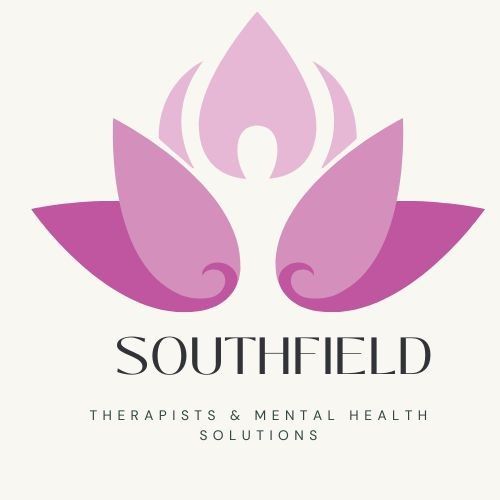Feeling Overwhelmed? Here’s When to Reach Out for Mental Health Support (And How We Can Help)
Mental Health: Why It Matters More Than Ever

Your mental health is just as important as your physical health.
We’re slowly breaking the stigma around mental health, but many people still view emotional struggles as a sign of weakness. The truth? Everyone has mental health. Just like we all need to look after our hearts, lungs, and muscles, we need to look after our minds, too.
According to the World Health Organization (WHO), depression is now the leading cause of disability worldwide. Anxiety disorders aren't far behind. And yet, only about one in three people with a mental health condition seeks professional help.
Why? Because it’s not always easy to know when to reach out — or who to reach out to. That’s where we come in.
10 Common Signs You Might Benefit from Therapy
You don’t have to be in a crisis to consider therapy. In fact, the earlier you seek support, the easier it is to make meaningful progress.
Here are some common signs that it's time to talk to someone:
1. You’re feeling stuck in negative thought patterns.
If your mind constantly jumps to the worst-case scenario, or you find yourself spiraling into self-criticism, it could be time to get help interrupting those thought cycles.
2. Your emotions feel out of control.
Do you find yourself crying for no clear reason? Or getting angry at small things that wouldn’t normally bother you? Emotional overwhelm can be a key indicator that something deeper is going on.
3. Your sleep or appetite has changed.
Are you sleeping too much — or not at all? Lost your appetite or bingeing for comfort? These physical symptoms can be tied closely to mental health.
4. You’re withdrawing from others.
When you're not returning calls or making excuses to avoid social events, it's often a sign of emotional fatigue or even depression.
5. You’ve experienced a traumatic event.
Trauma can come in many forms — loss, abuse, an accident, a breakup. Whether it happened recently or years ago, therapy can help process and heal those experiences.
6. You’re using substances to cope.
Alcohol, food, drugs, or even excessive screen time can be ways people self-medicate when they’re struggling.
7. You’re overwhelmed by decisions or responsibilities.
If everything feels too big to handle — even minor choices — therapy can help bring back clarity and confidence.
8. Your relationships are suffering.
Conflict, detachment, communication breakdowns — these can all be signs that your mental health is affecting your personal connections.
9. You feel like you’ve “lost yourself.”
A lack of purpose or joy, or a sense that you're just “going through the motions,” can be deeply distressing and worth addressing.
10. You’re having thoughts of self-harm or suicide.
If this is the case, please seek emergency help immediately. You don’t have to navigate these feelings alone.
“I’m Not That Bad Off” — Why You Don’t Need to Hit Rock Bottom
Let’s bust a myth here: you don’t need to be in crisis to benefit from therapy.
Mental health support isn’t just for people with a diagnosis. It’s for anyone who’s facing a hard time, wanting to grow, or trying to improve their emotional well-being.
Think of it like this: you wouldn’t wait for a broken leg to heal on its own, right? You’d go to the doctor. Mental health deserves the same attention. Early support can make a world of difference.
What Keeps People From Seeking Help (And How to Get Past It)
We hear these barriers all the time:
"Therapy is too expensive."
Many therapists offer sliding scale rates. Plus, Southfields can connect you with providers who fit your budget.
"I don't have time."
Most therapists now offer virtual sessions — some as short as 30 minutes. You don’t have to rearrange your life to prioritize your well-being.
"I'm embarrassed."
Needing support doesn’t mean you’re broken. It means you’re human. And you’re doing the brave thing by facing your struggles head-on.
"I tried therapy before, and it didn’t help."
That’s okay. Sometimes, it's just a matter of finding the right match. That’s exactly what we help with at Southfields.
What Happens When You Reach Out to Southfields?
Here’s the good news: you’re not in this alone. At Southfields, we’re here to make the process of finding the right mental health support easier, faster, and less overwhelming.
Step 1: Reach Out
Whether it’s through our website, email, or phone, the first step is simple. Just get in touch and let us know you're looking for support.
Step 2: Tell Us What You’re Looking For
We’ll ask a few questions (nothing too heavy!) to understand your needs. What are you going through? Do you have any preferences for therapy style, location, or availability?
Step 3: We Match You With the Right Provider
Using our trusted network of licensed professionals, we match you with someone whose expertise aligns with your needs.
Step 4: You Make the First Appointment
We’ll help you get connected and give you all the info you need to take that first step confidently.
Again, just to be 100% clear — we don’t provide therapy ourselves. Our mission is to be your guide and connector, making sure you don’t have to navigate the mental health maze alone.
Frequently Asked Questions
Q: Is Southfield Therapist & Mental Health Solutions a mental health clinic?
A: No. We are a referral service — our goal is to connect you with licensed, qualified therapists and counselors based on your individual needs.
Q: What if I don’t click with the therapist you recommend?
A: No problem. We’re happy to adjust and help you find someone who feels like a better fit.
Q: Do you offer help with virtual therapy options?
A: Absolutely. We can connect you with providers offering in-person, online, or hybrid sessions.
Q: How much does therapy cost?
A: Costs vary, but we always try to connect you with professionals who offer sliding-scale rates or accept your insurance.
Final Thoughts
If you’ve been feeling off, overwhelmed, stuck, or just not like yourself — it might be time to talk to someone. And if you’re unsure where to start, that’s okay. Southfields Therapist and Mental Health Solutions is here to help.
You don’t need a diagnosis. You don’t need to be at rock bottom. You just need a willingness to take that next step toward a better version of yourself.
We're not here to treat you — we're here to connect you.
So, if you’re ready to stop wondering, “Do I need therapy?” and start moving toward answers, reach out today. Let’s get you matched with someone who can help you feel like yourself again.
Disclaimer: This article is for informational purposes only and is not a substitute for professional medical advice or treatment. Always seek the guidance of a qualified health provider regarding any mental health concerns.
